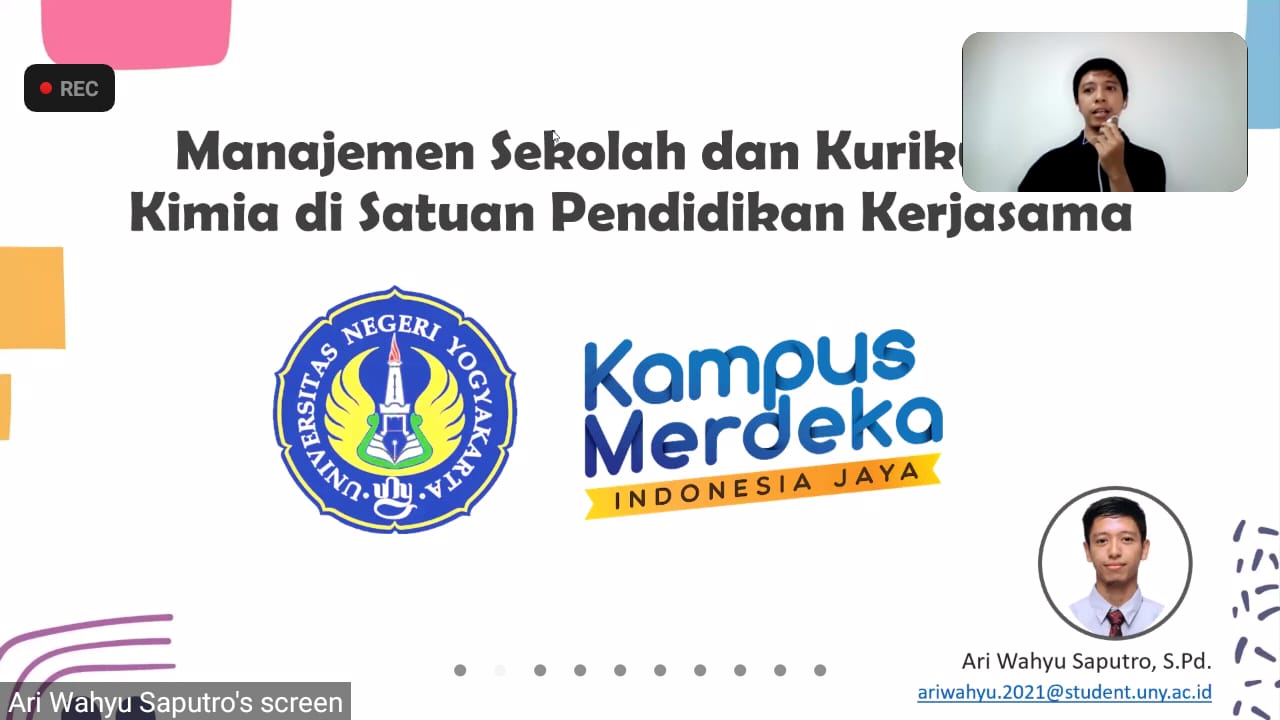 Bahasa Indonesia
Bahasa Indonesia English
English
You are here
Learn With Practitioner #2: International School Curriculum

To prepare competent graduates, through the implementation of the Merdeka Learning curriculum on the Independent Campus, the Chemistry Education Study Program as part of the Faculty of Mathematics and Natural Sciences, Yogyakarta State University, implements the Learn with Practitioner program. Attended by 74 students of Bachelor and Masters in Chemistry Education, Dr. Antuni Wiyarsi, M.Sc as the Coordinator of the Chemistry Education Study Program opened this Learn with Practitioner Program #2. The theme raised is School Management and Chemistry Curriculum in the Cooperation Education Unit. The speaker who shared his experience on this occasion was an alumnus of the 2015 Chemistry Education Study Program. Ari Wahyu Saputro, S.Pd is the vice principal of curriculum at an international school in Yogyakarta. Currently he is a student of the Master’s Program with an LPDP scholarship.
Based on his experience, the speaker provided reinforcement and motivation for students to dare to prepare for their dreams since college. Relevant to the material studied by students in the Education Management and Chemistry Curriculum class in high school, there is a lot of knowledge about studying chemistry in international schools. Not only the Indonesian K13 curriculum, international schools adapt the Cambridge curriculum so that there are two applicable curricula that complement each other's learning needs. Not only studying chemistry, students can develop their creativity and skills to make products that can be marketed. This is in line with the school's mission to create graduates as sociopreneurs. The evaluation carried out is adjusted to the International Student Assessment standards. Even though, K13 becomes a reference for the subjects of Citizenship, Indonesian, Regional Languages, and which characterizes the K13 curriculum.
As a closing statement, the speaker provided some illustrations of the work that graduates of the Chemical Education Bachelor's degree can do, such as creating non-formal educational institutions, becoming teachers at Indonesian Overseas Schools, or continuing their education with various available scholarships. The implementation of the Teaching Practitioner Program #2 hopefully can be a motivation to continue to prepare goals and ideals
Sistem Informasi
Kontak Kami
Program Studi Pendidikan Kimia
FMIPA Universitas Negeri Yogyakarta
Gedung Dekanat D.07 FMIPA UNY
Kampus Karangmalang Yogyakarta 55281
Telp. (0274)586168 Pes. 115
Email: pend_kimia@uny.ac.id
Copyright © 2024,
